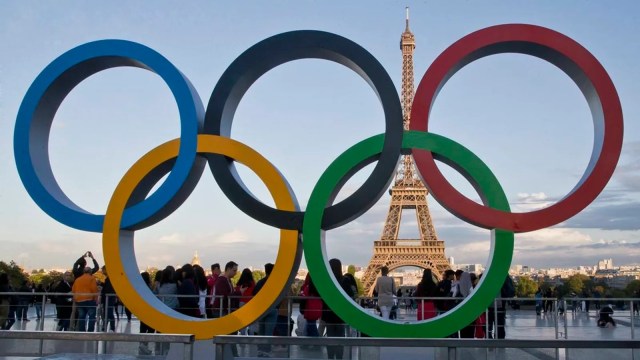
The Paris Olympic and Paralympic Games 2024 ended a few days ago. The Games were not just an occasion to witness records breaking, including the remarkable achievements of the Indian para-athletes’ delegation. They will also be remembered in history as one of the most inclusive, diverse and sustainable sports events.
From the opening ceremony on the Seine, the first ever to be held beyond the walls of a stadium, to the last parade, which took place on September 14, the Paris 2024 Games gathered, physically and virtually, hundreds of millions of sports fans. Athletes and para-athletes have made history in iconic venues in France such as the Eiffel Tower and the Grand Palais in Paris, the Palace of Versailles, as well as in the French overseas territories. Throughout this sporting extravaganza, some remarkable moments will be remembered: The triumphant comeback of Simone Biles in women’s gymnastics, the new world record of Armand Duplantis in men’s pole vault, French swimming superstar Léon Marchand’s four gold medals, or Harvinder Singh’s gold medal in men’s para archery — the first ever for India in this sport.
The Paris 2024 Games were watched by almost a billion people across the world, including in India where the Alliances Françaises network had deployed “fan zones” across the country. The Games were an “unprecedented success” with over 12 million tickets sold, surpassing the previous record set in London 2012. Over a million people thronged the streets of Paris to witness the bike race, and millions more gathered in free “fan zones” across the country.
Nonetheless, the greatest success of these Games extends beyond the field of sports. In spite of the best tally of medals that French athletes and para-athletes have ever won, the legacy of Paris 2024 will lie, above all, in its contribution to a more diverse, tolerant, inclusive and sustainable society.
The Games have been a great catalyst for adapting society to persons with disabilities. One thousand seven hundred and fifty “inclusive clubs” were created in France before the Games to develop para sports and to train more para-athletes — the objective is to create 3,000 of these clubs by the end of 2025. The Games have also been an occasion to invest in the accessibility of the main sport facilities as well as to take concrete measures to facilitate the mobility of spectators with disabilities: Hundred per cent of the bus and tram networks in Paris were made wheelchair-friendly, the national railway company and the main airports doubled the number of available wheelchairs, 1,000 taxis were made available, among other measures.
The Games have also shown that sport has a much broader role to play in our society — to foster unity and encourage people to better accept differences. For instance, Paris 2024 was marked by a picture of North and South Korean athletes standing together, as well as by the words of the Indian para-athlete Sheetal Devi after her incredible comeback to win a bronze medal: “When I started playing, no one knew me. Now the entire world knows me — they know who Sheetal Devi is, and I am proud of that.” These images, these words, will definitely leave a mark on our society.
The role of sports in strengthening health and preventing illnesses has also been put forward. The Games have been an occasion to further develop sports in French schools (30 minutes of sports have been added to the daily programme of elementary schools), as well as to reach new publics with “sports dating” everywhere in France, along with swimming projects and investment programmes throughout the country.
Sustainability has been a key priority during the Games and will remain one of their main legacies. Paris 2024 will create a long lasting heritage in our cities. Two thousand French companies have been involved in the Games to ensure sustainability. Four thousand apartments in La Seine-Saint-Denis will be turned into a new neighbourhood and the new Olympic aquatic centre, built in the north of Paris, will be turned into a green park for the public. The Games will accelerate the eco-transition of many facilities and places: The cleaning of the Seine will probably be remembered as one of the most relevant examples. The Paris 2024 Committee worked tirelessly over years, with one of the smallest budgets ever for such an event (€4.4 billion, of which 95 per cent came from private funding) to achieve this great success.
The Paris 2024 Olympics also made history by achieving gender parity on the field of play, ensuring equal representation of male and female athletes.
Overall, these Games have been a display of audacity, ambition and unity and France is convinced that India will show the same qualities in its bid to host the 2036 Games. As President Macron underlined in a recent interview, we are willing to share our experience of hosting the Games as we strongly believe in the future of India. France is ready to transfer knowhow, in particular by exchanging expertise regarding the organisation of major international sporting events, as well as to encourage the participation of French companies to support India’s candidacy. In this context, joint work has already started: India helped France by sending a canine squad for security purposes. Indian officials, including Sports Secretary Sujata Chaturvedi, were welcomed in Paris during the Games to meet French experts, and a bilateral working group on sports cooperation will soon be launched to boost exchanges and links between economic and institutional actors.
“Faster, Higher, Stronger” is the motto of the Olympics and Paralympics. This is also the spirit of the partnership between our two nations. In sports, as in many other areas, the Indo-French ability to partner and innovate together will allow us to set new records.
The writer is the ambassador of France to India



